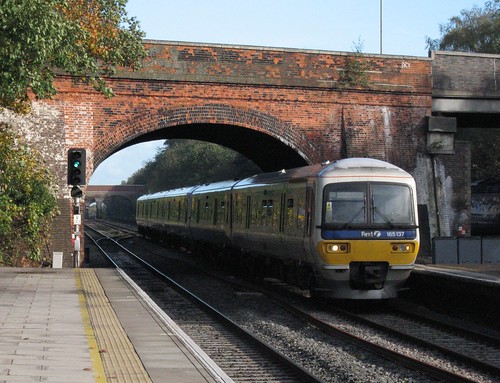The vacillations over the Great Western main line electrification are a good illustration of the confusion that reigns over rail policy in Britain. In 2009, electrification of the routes to Cardiff, Bristol, Oxford and Newbury was approved by a Labour minister. Now the project has been cut back to Oxford and Newbury, which are London commuter routes. One factor is the major rebuilding of Reading station and the adjacent junction, a scheme which will continue until 2016 and restrict the amount of traffic that can use the line whilst the work is in progress. Clearly, the electrification project needs to be integrated with the developments at Reading and for this reason it may be that other routes would be better placed in the front of the queue for electrification, of which the most obvious choice is the Midland main line, but another possibility is the Chiltern route to Oxford via a new junction at Bicester. But the aim should nevertheless be to complete the electrification to Bristol and Cardiff at the same time as the Reading reconstruction.
The cut-back of the Great Western electrification project opens up a whole series of questions about rolling stock policy, that have not been helped by transport minister Hammond's announcement that there should be no further life-extension of the HST fleet.
The intention is that the Great Western suburban routes should be operated by cascaded class 319 stock dating from the 1980s, which in turn will be replaced by a new fleet. It has been suggested that the existing DMUs used on the Great Western suburban services (above), which are actually newer than the class 319s, will be deployed elsewhere. However, this is not so easy. These units, of classes 165 and 166, are 23 metres long and 2.82 metres wide, were built specifically to take advantage of the generous clearances on the Great Western routes out of London. A study by the Rail Safety and Standards Board found that the route availability of these units is very restricted, with expensive work being needed to clear other routes.
One option that seems not to have got a mention would be to convert these diesel trains into electric multiple units, but a further question that arises concerns the life expectation of the vehicles. These were the first generation of trains having bodyshells constructed of wide aluminium extrusions with welded seams, and whilst they may have a future life of two or three decades, there is apparently no means of predicting at present, and the same applies to the class 158 DMUs of the same vintage. However, the cost risk of premature failure of the body structures could be minimised by by designing the electrical equipment for recovery and recycling. Alternatively, the units could be converted into push-pull sets powered by electric locomotives, which would be the most flexible and non-committal solution of all.
The subject is discussed in an article by Paul Clifton in the January 2010 issue of Rail Professional.

Kommentarer